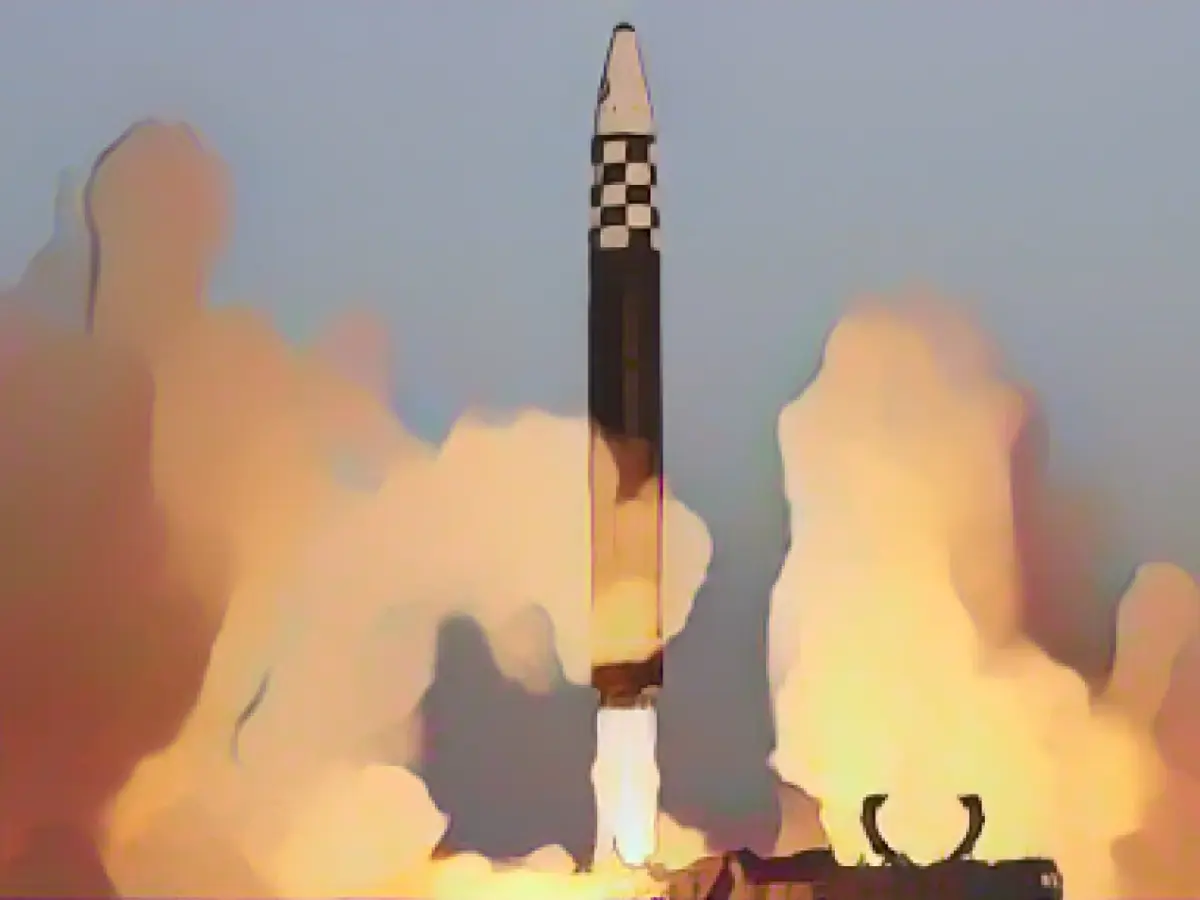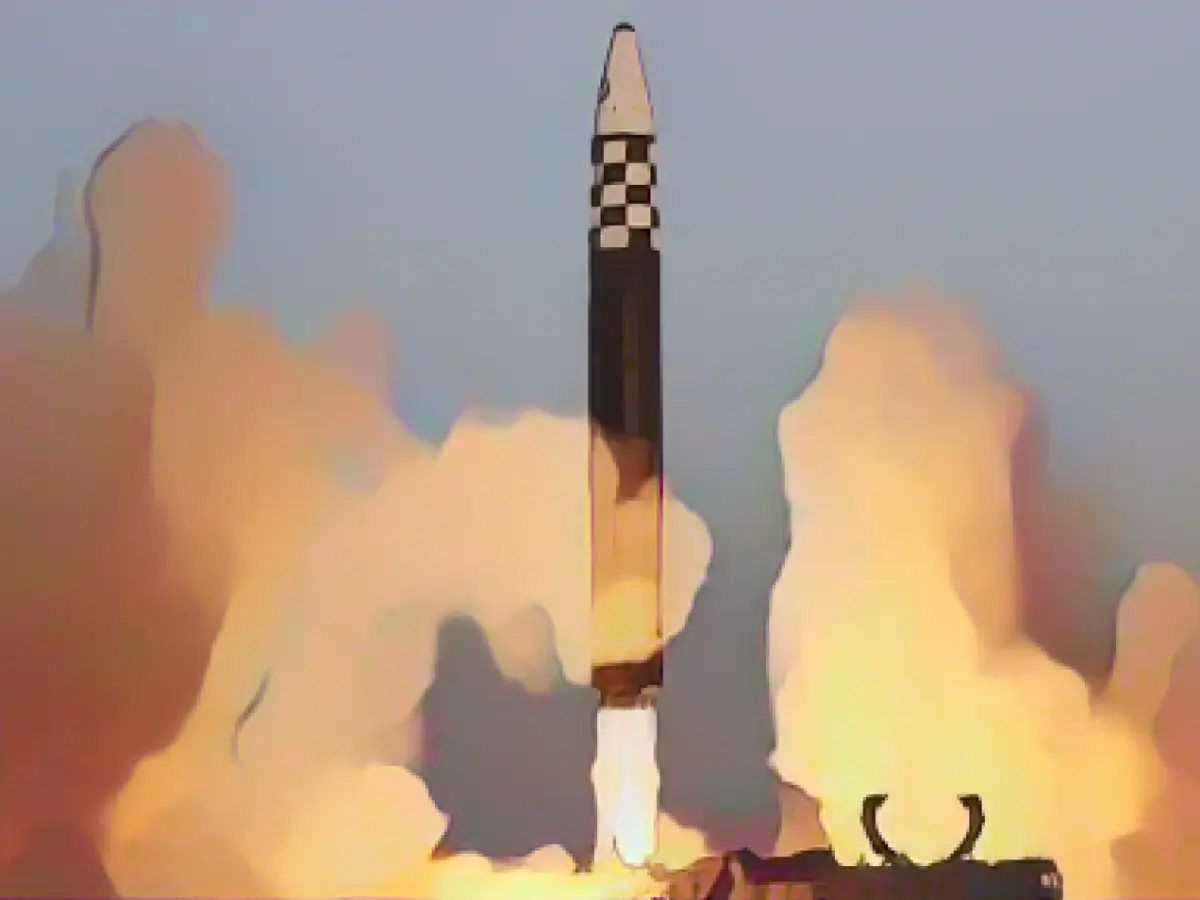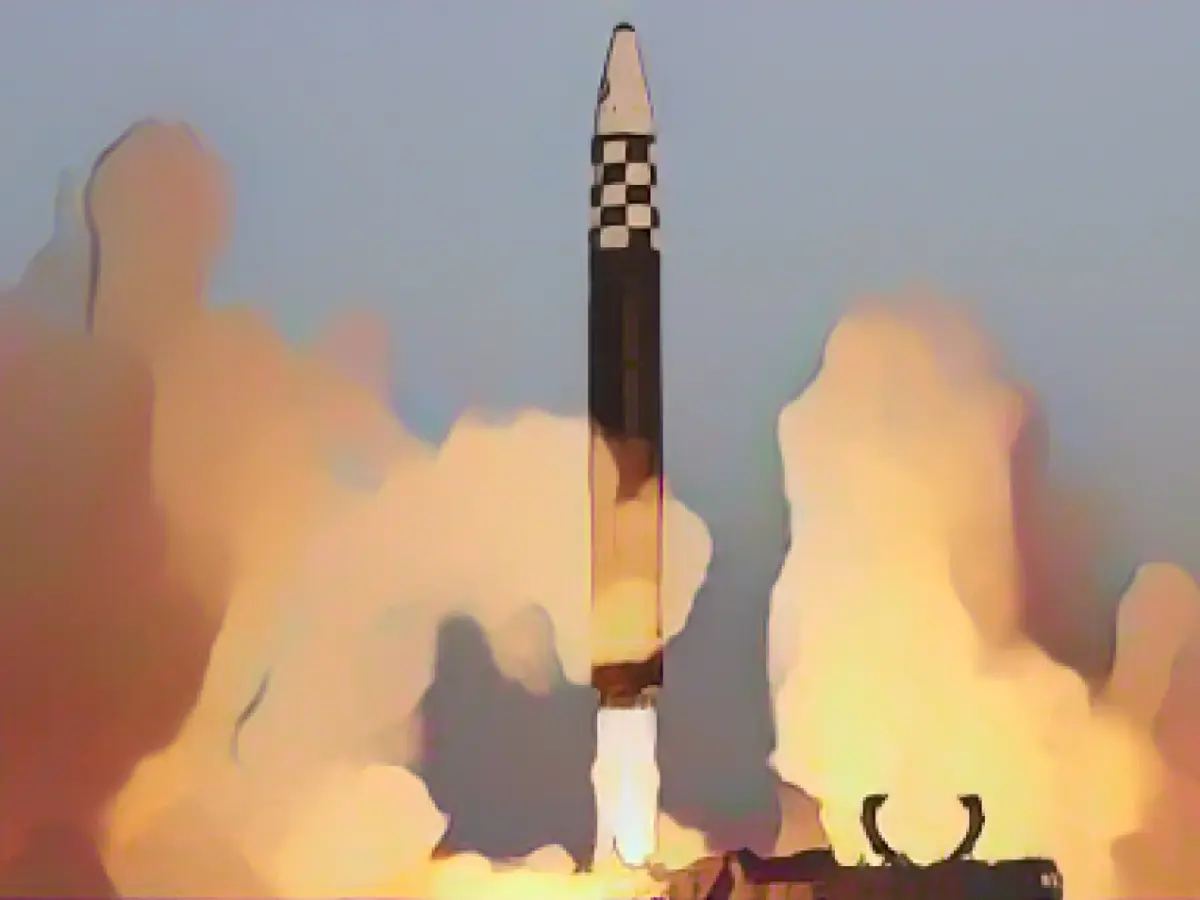Conflicts Persist: North Korea's Missile Launch Sparks Concerns
In a blatant disregard for UN prohibitions, North Korea fired yet another ballistic missile, according to South Korea's military. The test missile soared for about 570 kilometers before plunging into the sea between the Korean Peninsula and Japan. The incident occurred shortly after the USS Missouri, a nuclear-powered American submarine, docked in Busan, South Korea .
South Korea reported detecting the missile launch in Pyongyang's vicinity late Sunday evening. The projectile was identified as a short-range missile. The move was deemed an act of provocation by the General Staff in Seoul, as UN resolutions strictly prohibit North Korea from launching or even testing ballistic missiles .
North Korea's ballistic missile tests have escalated tensions with its neighboring countries, like Japan, and the United States. Pyongyang labels the US as a hostile state and has conducted several missile and guided missile tests this year .
In light of these escalating conflicts, the US and South Korea agreed in April to enhance their military cooperation. The plan included temporary deployments of strategic American weapons systems, including nuclear submarines, to deter potential threats .
Recently, the US, South Korea, Japan, and Australia imposed new sanctions on North Korea due to its launch of a reconnaissance satellite in November. They accused Pyongyang of using technologies directly associated with their intercontinental ballistic missile program .
Related Content
Key Insights
North Korea's continuous violations of UN prohibitions on ballistic missile launches remain a significant concern for the international community. Here, we provide the latest developments and international responses to the missile tests:
- Missile Capabilities and Production:
- Pentagon's Warning: The Pentagon warns that North Korea may soon move into the production phase of its intercontinental ballistic missiles (ICBMs) capable of reaching the US. The Hwasong-19 ICBM, with its solid-fuel design, can be deployed and prepared for launch more quickly than missiles with liquid propellant, making preemptive detection and interception challenging .
- UN Condemnation and Sanctions:
- UN Security Council: The UN Security Council condemns North Korea's missile tests, labeling them as a "grave violation" of Security Council resolutions. Since 2006, a strict sanctions regime, including export bans on copper, nickel, silver, and zinc, and limitations on coal and iron exports, has remained in place .
- Emergency Session: The UN Security Council convened an emergency session in February 2025 to address the latest missile test, issuing a joint statement calling for further significant measures against North Korea .
- International Community's Efforts:
- Six-Party Talks: The international community continues advocating for diplomatic solutions through six-party talks, which were discontinued in 2009 but still present a potential avenue for discussions .
- Sanctions Enforcement: The UN panel monitoring international sanctions on North Korea reported that the regime maintained and developed its nuclear and ballistic-missile programs throughout 2020, funding their activities by means of cyberattacks and skirting around some sanctions .
- Technological Cooperation and Threats:
- Iran-North Korea Cooperation: There's evidence suggesting that North Korea has resumed cooperation with Iran on long-range missile projects, including the transfer of critical parts. This cooperation is viewed as a threat by the international community, particularly by the United States .
- Technological Exchanges: General Gregory Guillot warned about potential technological exchanges between North Korea and Russia, which could strengthen North Korea's advanced strategic weapons program .
- US Response and Next-Generation Missile Defenses:
- Next-Generation Interceptor (NGI): The US is investing in next-generation missile defenses, including the NGI and improved domain awareness technologies, to counter advanced adversary missile threats .
- Iron Dome Initiative: US President Donald Trump signed an Executive Order to establish a US “Iron Dome,” a next-generation missile defense system incorporating space-based interceptors to defend against hypersonic weapons, ballistic, and cruise missiles .
The international community remains divided over how to tackle North Korea's missile program, with some advocating for stronger sanctions and others advocating for diplomatic engagement. The situation continues to escalate tensions and highlights the importance of robust missile defense systems and diplomatic efforts to address the threat posed by North Korea's nuclear and ballistic missile programs.






